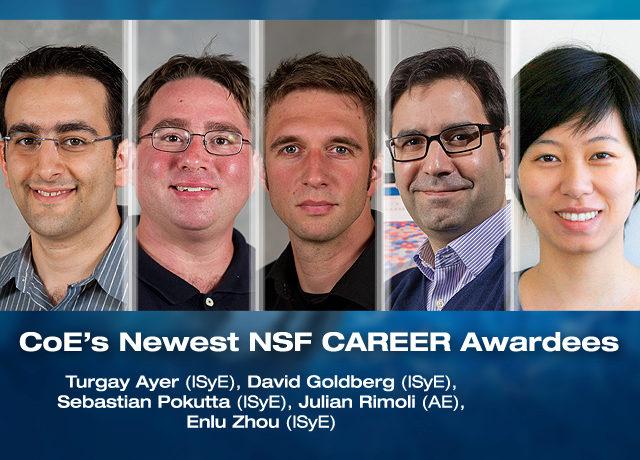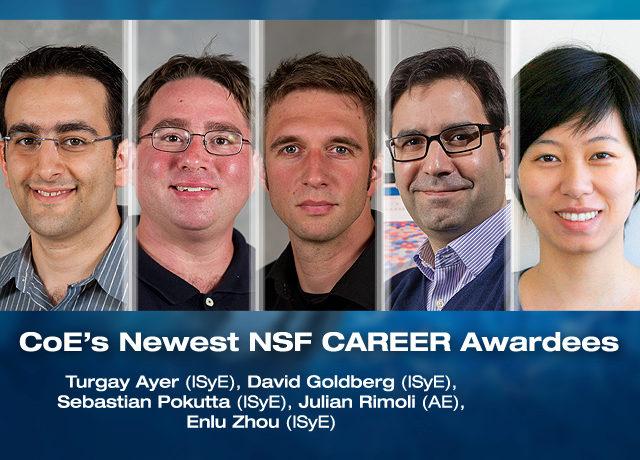Five faculty members in the College of Engineering have been selected to receive Faculty Early Career Development (CAREER) Awards from the National Science Foundation.

The CAREER award is the NSF’s most prestigious award in support of junior faculty who exemplify the role of teacher-scholars through outstanding research, excellent education and the integration of education and research within the context of the mission of their organizations. They provide up to five years of funding.
The five faculty members who received awards are:
Turgay Ayer, assistant professor in the Stewart School of Industrial & Systems Engineering, received his award to study the design of optimal population-based disease surveillance policies and treatment prioritization strategies for chronic infectious diseases in resource-limited settings. The project particularly focuses on the optimal control of hepatitis C Virus. This study will use data-driven mathematical models to underpin some of such complex health policy decisions. From an educational standpoint several high school and undergraduate students will be engaged into these research activities.
David Goldberg, assistant professor in the Stewart School of Industrial & Systems Engineering, will use his CAREER award to develop algorithmic and modeling tools and methodologies for inventory control problems. Such models have many applications critical to the American economy, including: supply chains, healthcare, energy, cloud computing, military operations, and advanced manufacturing. The award will help with the integration of undergraduate engineering students' experiences in senior design projects enabling students to connect their coursework directly to interesting real-world applications.
Sebastian Pokutta, a Coca-Cola assistant professor in the Stewart School of Industrial & Systems Engineering, was awarded a grant to help explore the power of Semidefinite Optimization problems, a broad class of optimization problems fundamental to solving many real-world problems in engineering and computer science. Pokutta will also have an integrated educational program which will broaden the involvement of under-represented groups and enhance engineering education.
Julian Rimoli, assistant professor in the School of Aerospace Engineering, was awarded for a research effort that will provide modeling and computational capabilities for the analysis of next-generation materials with improved thermomechanical performance. This is needed for the most demanding engineering applications including thermal barrier coatings for energy generation and propulsion, wear protection systems, and packaging of microelectronic devices. Rimoli’s grant also brings an educational component which will focus on promoting interest in STEM careers among Latino K-12 students through the development and implementation of a summer camp introducing participants to engineering and mechanics.
Enlu Zhou, assistant professor in the Stewart School of Industrial & Systems Engineering, received an award to develop new methods for optimizing and predicting performance of complex systems that are described by stochastic simulation models. Such systems arise in various areas such as finance, engineering design, systems biology, and manufacturing. This project is also working to integrate research with course development and in-classroom teaching in hopes of engaging more females and underrepresented minorities in engineering, and to expose high-school students and middle-school girls to the field of industrial engineering and operations research.
